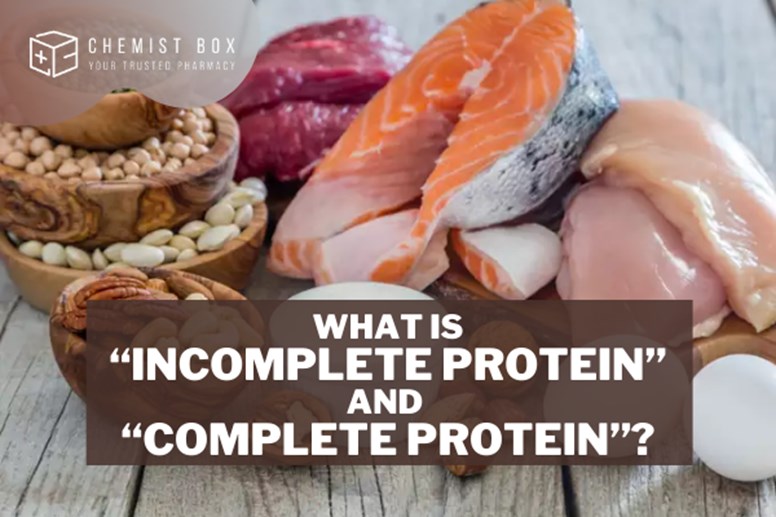
Proteins, an essential part of our diet, these are important because they are the building blocks of body tissue, they are the most essential for the cell growth. Proteins are popular as body fuel, simply they provide energy to our body parts to function properly. They enhance our immunity system.
Protein is obtained from both plant-based sources and animal-based sources. Plant-based sources of protein are often deemed inferior to animal-based ones, as the former is said to contain “incomplete” proteins. This concept creates a fear among the vegetarians or vegans that they may be getting the wrong type or quantity of protein. However, the reality behind this is something different.
There is many reason that prove this belief as a myth than a reality. Let us know what actually complete and incomplete protein is.
What Are Incomplete Proteins?
Protein actually is a complex element, made up of building blocks called amino acids. There are hundreds of amino acids available in nature, only 20 among them is required to compose all of the protein found in your body. Based on this amino acids are categorized in three parts:
Food sources that consists of all nine essential amino acids are taken as sources of “complete” protein, whereas those that don’t are labeled as “incomplete” protein.
Food Sources That Provide Incomplete Protein?
Neither protein that we get from animal sources or the protein that we get from plant are devoid of any of the 9 essential amino acids. Then you might be thinking what is the difference between the protein that we get from these sources? The difference lies in the amount of essential amino acids from these two sources.
For instance, meat, fish, eggs, and dairy contain high levels of all nine essential amino acids. On the other hand, plants tend to contain low amounts of at least one or two essential amino acids, depending on the category to which they belong.
For example, legume plant and vegetable plants tend to be low in methionine and cysteine, while grains, nuts, and seeds tend to be low in lysine. Methionine, Cysteine, and lysin are the among the nine essential amino acids.
If we overview, we can conclude that, if a person follows a vegetarian diet or too little of either food group may receive insufficient amounts of essential amino acids. And based on this concept, animal sources of protein are taken as complete protein and plant-based sources of protein is taken as incomplete protein.
Well, there are exception too! Yes, there are many plant-based sources of protein that are categorized as complete protein, for example, soy, quinoa, amaranth, buckwheat, and nutritional yeast, as well as hemp and chia seeds. These contain good amounts of all nine essential amino acids.
Can A Vegan Or Vegetarian Diet Person Get Complete Protein?
Well, there is no evidence of protein deficiency among vegetarians or vegans, found till. However, it has been observed that people who eat too few calories or follow monotonous eating patterns, such as fruitarian or potato-based diets, lack some of the essential amino acids in small quantity.
Added to that, as per researches, it has been found that plant-based sources of protein is a bit difficult to get observed by human body as compared to animal-based sources of protein. This difference in absorption may result in insufficient supply of essential amino acids in vegetarian and vegans, from their diet.
This is why vegetarians and vegans are sometimes encouraged to eat slightly more protein than non-vegetarians — that is, around 0.5 grams per pound (1 gram per kg) per day
However, vegetarians and vegan do not need to worry about their protein intake and do not look at these concepts of incomplete and complete protein, as long as their diet contains a good variety of food groups and enough calories.
It is a proven fact that the protein requirement in an individual’s body, depends on their activity level, body weight, and health status. Individuals who follow a very hard work out routines or lack energy in their body, require a high amount of protein, whereas people who follow a very normal routine with no workout and no exercise, require a normal protein intake. One must consult a medical professional or registered dietitian to know the details.
Stay Informed! Stay Fit! Stay Healthy!
Thank You.
0 Items ₹ 0
| Product Name | Unit Price | Qty | Subtotal |
|---|